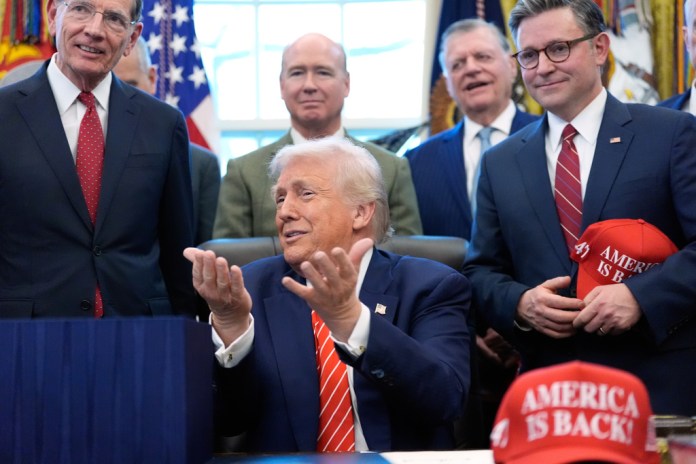Somaliland targets ‘dealmaker-in-chief’ Trump for US recognition
The article discusses Somaliland, a self-governing region that declared independence from Somalia in 1991 but is not officially recognized by any foreign government. Somaliland is seeking to engage with the Trump administration for potential recognition, hoping to shift the long-standing U.S. policy that currently supports the Somali government in Mogadishu. Unlike Somalia,which has experienced instability and violence,Somaliland has achieved stability,economic growth,and democratic governance,presenting itself as a reliable partner for the U.S.
Officials from Somaliland believe that recognition could enhance economic opportunities and strategic military partnerships, particularly given its geographical advantage along the Gulf of Aden. Despite Somaliland’s efforts, the U.S. state department has stated that it is not currently in discussions regarding recognition. Experts debate the implications of such recognition, with concerns about potential impacts on secessionist movements elsewhere in africa.
The article also highlights recent diplomatic advancements with Ethiopia and the significance of Somaliland’s location in the geopolitical context, particularly concerning U.S.-China competition in Africa. Historically, Somaliland was a British protectorate and has evolved substantially compared to Somalia, which plunged into chaos post-independence. The article underscores the complex geopolitical dynamics at play and the possibility of Somaliland gaining diplomatic recognition under a possibly more flexible U.S. foreign policy.
Somaliland eyes up a deal with Trump in return for US recognition
A self-governing breakaway region of Somalia known as Somaliland is not recognized as an independent country by any foreign government, but it is hoping to convince the Trump administration to change long-standing U.S. policy.
Somaliland, which declared its independence from Somalia in 1991, is in the Horn of Africa, strategically on the coast of the Gulf of Aden. Unlike Somalia, which has faced decades of instability, terrorism, and piracy, Somaliland is much closer to a Western country that has proven itself capable of success without foreign investment.
Washington’s long-standing policy has been to ignore the realities of the fissure and continue providing financial aid to Mogadishu, but Somaliland officials are hopeful that President Donald Trump could be the unconventional leader finally willing to reevaluate U.S. strategy toward the breakaway region.
“I would not put a time frame on it, but I would say we are highly optimistic,” Bashir Goth, Somaliland’s de facto ambassador to Washington, told the Washington Examiner.
In addition to being one of the more stable governments in the region, Somaliland has a lot to offer the United States, mainly in terms of economic opportunity and defense. Somaliland has minerals, oil, and gas, and the country is “untapped,” Goth said.
“We have everything that you can imagine, but we just need international engagement, investment, and partnership,” he added.
However, the State Department is not “in discussions with Somaliland’s representatives about a deal to recognize Somaliland as a state,” a spokesperson told the Washington Examiner.
The U.S. recognizes the sovereignty and territorial integrity of the Federal Republic of Somalia, including Somaliland’s territory.
Pros and cons of recognition
Somaliland governs itself even though its government is not recognized by Somalia or any other foreign government. Not having international recognition has made it harder for Somaliland to make beneficial trade, economic, and defense pacts, though the government has agreed to investment deals in recent years with foreign powers, including Ethiopia and the United Arab Emirates.
Experts in favor of Somaliland recognition argue that doing so would highlight the region’s potential.
“Somaliland has a lot of potential benefits to the United States, and I think the U.S., in general, needs to have a reality-based policy, and the reality is that Somaliland is independent. It behaves independently, and has for three decades,” Josh Meservey, an expert with the Hudson Institute, told the Washington Examiner. “So our policy in that region has been crippled by the fact that it’s not based on reality. It pretends it goes along with this fiction that Somaliland is part of Somalia, but in practice, it’s not.”
Former Assistant Secretary of State for African Affairs Tibor Nagy told the Washington Examiner that current U.S. policy has “been literally meeting the definition of insanity, doing the same thing over and over and over and over again and expecting different results — with Mogadishu.”
However, there have been long-term concerns about what Somaliland recognition could mean on the African continent and whether it could set additional precedents for secession movements.
“There are risks associated with any policy, and especially a bold one that breaks with conventions somewhat, so the risks, obviously, Mogadishu would be furious. I would say, okay, that’s too bad,” Meservey added. “There’s fear that it would embolden secession movements right around the continent, but I’m not convinced of that.”
Last year, Somaliland and Ethiopia agreed to a Memorandum of Understanding, or diplomatic agreement. The deal primarily involves Ethiopia gaining limited access to Somaliland’s coastline along the Red Sea in exchange for future recognition of Somaliland’s independence.
Mogadishu was furious with the agreement and has, in turn, pursued its own diplomatic ties with other countries.
Trump’s “art of the deal”
Trump loves making deals, and he has not been shy about throwing out long-standing norms in exchange for what he sees as more favorable agreements for the U.S., which could play into Somaliland’s favor.
“Should we finally recognize Somaliland and make what the president would say is a beautiful deal for the use of Barbara Port and the airport, there would be lots and lots of advantages there,” Nagy said. “I’m sure we could make a deal, just an incredible deal.”
While the State Department spokesperson denied that the department was “in discussions with Somaliland’s representative,” they did not specify whether that could change.
“We always look for partnerships and for investment,” Goth said. “We never look for aid, and I think that will really appeal to the current administration.”
Ambassador J. Peter Pham served as special envoy for the Sahel and Great Lakes regions during Trump’s first term and has been linked to openings in the administration’s Africa policy team. He is an outspoken critic of long-standing U.S. policy toward Somaliland.
There is some bipartisan support for reevaluating current U.S. policy, though Africa policy has not been a top priority for Congress.
Sen. James Risch (R-ID), chairman of the Senate Foreign Relations Committee, “has not advocated Somaliland’s independence as a U.S. policy objective,” but he believes the U.S. should “explore mutually beneficial partnerships with entities beyond the federal government of Somalia in Mogadishu to include Somaliland,” a committee spokesperson told the Washington Examiner.
Countering China
For decades, the U.S. and China have competed to expand their partnerships with African countries, many of which are rich in resources.
Somalia and Somaliland have gone in opposite directions, searching for those partners. Somalia has ties with China, while Somaliland has relations with Taiwan, the self-governing island the Chinese government claims is a rogue part of its country.
The U.S. provides military aid to Taiwan, but does not recognize its independence. With both seeking foreign recognition, Taiwan has a diplomatic presence in Hargeisa, and Somaliland has one in Taipei, which has angered Mogadishu and Beijing.
In April, the Somali government moved to bar Taiwanese passport holders from entering the country just days before Taiwan’s foreign minister was scheduled to visit the territory.
“Somaliland is part of Somalia’s territory,” Guo Jiakun, a spokesman for China’s Foreign Ministry, said on April 30. “China firmly supports the Somali federal government’s effort to safeguard national unification, sovereignty, and territorial integrity, and firmly opposes the Taiwan authorities and Somaliland hosting each other’s institutions or having any form of official interaction.”
The U.S. military has a presence in the Horn of Africa, where it has worked with Mogadishu to carry out counterterrorism operations. The U.S. has a military base in neighboring Djibouti called Camp Lemonnier. Beijing also has a military base not far from Camp Lemonnier in Djibouti.
“There are more than 6,000 U.S. Africa Command personnel — military, civilians, and DOD-funded contractors — on the continent on any given day. Most (about 3,500) operate from Camp Lemonnier in Djibouti,” a spokesperson for U.S. Africa Command told the Washington Examiner. “Combined Joint Task Force — Horn of Africa conducts operations to enhance partner nation capacity, promote regional stability, dissuade conflict, and protect U.S. and partner interests.”
In 2018, the Pentagon accused the Chinese of using lasers to interfere with military aircraft landings in Djibouti. Using a base in Somaliland instead of Djibouti would presumably be a safer and less congested area to station troops.
“It doesn’t make sense to have a base just a couple of miles from the Chinese, and remember the Chinese … have been using lasers to blind American pilots coming into Djibouti. So I mean, the congestion in Djibouti is real,” said Michael Rubin, senior fellow at the American Enterprise Institute.
The independent, unrecognized enclave wants to offer the U.S. military a base along the coast, including Berbera International Airport, which has one of the longest landing strips in Africa. The location of this base would provide the U.S. with direct access to the Gulf of Aden, which is the body of water where Yemen-based Houthis have been firing rockets and drones at transiting ships.
The Bab el Mandeb Strait separates Yemen and the Horn of Africa, making it a strategic chokepoint only about 20 miles wide. The U.S. military had two naval carriers in the region to carry out the seven-week military campaign they conducted against the Houthis in recent months.
The Chinese, trying to make inroads across the African continent, are working to “replicate” and replace U.S. programs meant to help Africans that the Trump administration has cut, Gen. Michael Langley, commander of U.S. Africa Command, told lawmakers recently.
History
Somaliland was a British protectorate until it unified with present-day Somalia in 1960, which had ties with Italy. Dictator Siad Barre gained power in 1969 and later faced opposition from a rebel group known as the Somali National Movement in the 1980s. He was ousted from power in 1991, and shortly thereafter, Somaliland declared its independence and decided the city of Hargeisa would be its capital.
“Somalia maintained diplomatic recognition,” following the 1991 revolution, according to Nagy. “Somaliland, at that time, did not get any recognition from anybody, so the two went their separate ways. Somaliland, taking on more of its British colonial history, became a lot more democratic, whereas Somalia kind of fell apart.”
“Somalia became basically an anarchic state ruled by various clan militias, and Somaliland went its own way. It did not get international recognition from anybody. It did not get any assistance, but they became steadily more democratic, totally free market, capitalistic, very, very pro-West,” Nagy added.
A major moment occurred in 2013, when the Obama administration granted recognition to the Somali government in Mogadishu, the first time a U.S. administration had done so since the onset of the Civil War.
TRUMP’S ‘AMERICA FIRST’ POLICY LEAVES ISRAEL UNEASY
Once the U.S. recognized Somalia’s government, “it became this project of supporting Mogadishu became somewhat ingrained in certainly democratic foreign policy,” Meservey said.
Nagy, who served as assistant secretary of state for African affairs during the first Trump administration, said the administration was looking into recognizing Somaliland’s independence prior to the 2020 election. Instead, the Biden administration returned to Washington’s long-standing policies of only recognizing Somalia’s rule.
" Conservative News Daily does not always share or support the views and opinions expressed here; they are just those of the writer."




